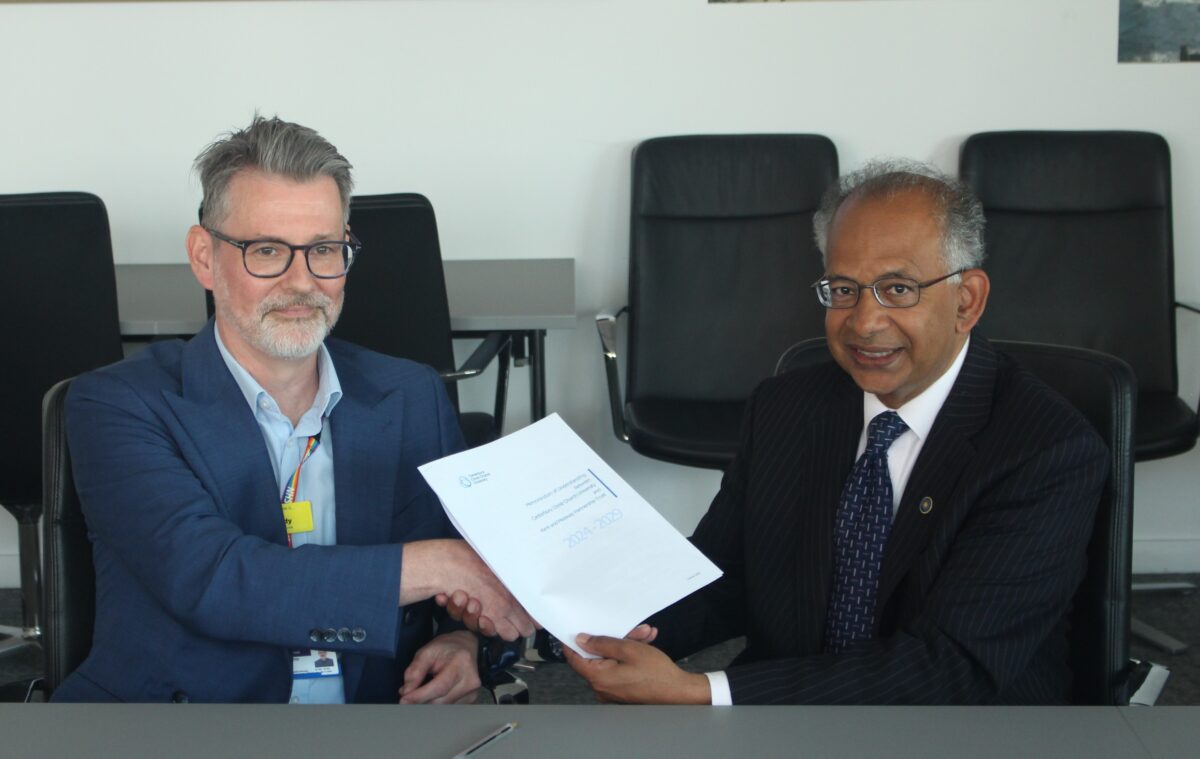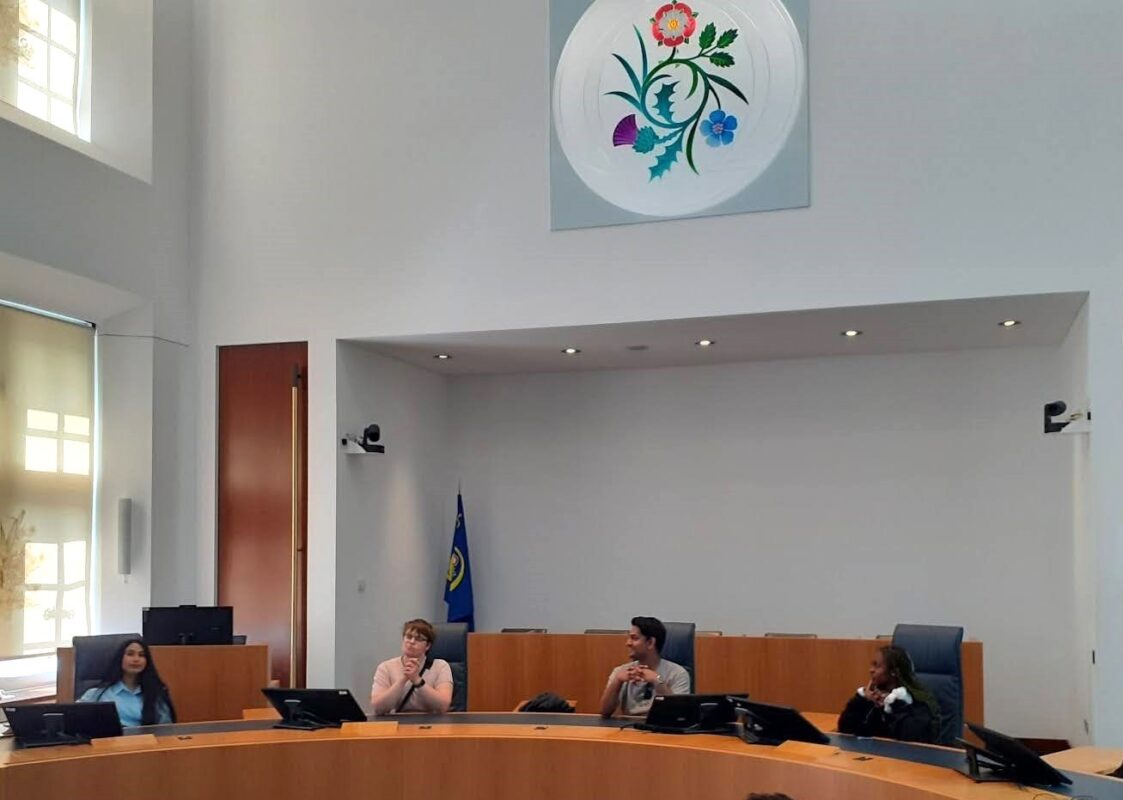Ofsted Announces Changes to Inspections

Ofsted has announced changes to inspection processes, a revised complaints procedure, and new wellbeing investment which includes additional support for staff wellbeing.
This comes after it was announced that Education Committee will question Ofsted Chief Inspector Amanda Spielman on the regulator’s role in supporting reforms to the children’s social care sector on Tuesday 13th June.
On 8th June, the education secretary, Gillian Keegan, said the government will “take action to offer further support” to school leaders following the death of Ruth Perry.
Changes, as set out by Ofsted
Changes to inspection processes, a revised complaints procedure and new wellbeing investment from government, are part of a package of measures being announced following a wide-ranging debate about the impact of school inspections.
Revisions to school inspections will see inspectors return more quickly to schools graded inadequate where this is only due to ineffective safeguarding, and proposed changes to Ofsted’s complaints process will increase transparency and make it easier for schools to raise concerns.
The Department for Education (DfE) already funds the charity Education Support, to provide wellbeing help for school leaders, and that programme will now be doubled in size to support an additional 500 heads by March 2024. In the longer term, the DfE commits to further expand its mental health and wellbeing offer beyond March 2024.
In April, Ofsted’s Chief Inspector Amanda Spielman made a statement broadly setting out some changes Ofsted was considering making to inspections. Since then, we have been in regular discussion with union leaders, other sector representatives and the DfE about a package of measures to improve aspects of our work with schools.
Today we are able to announce more about these changes, many of which will take effect immediately, with the rest introduced from September this year:
Inspecting safeguarding
Inspectors will now return more quickly to schools graded inadequate overall due to ineffective safeguarding, but where all other judgements were good or better. We will return within 3 months of an inspection report being published, and parents will be informed of this intention in the report. If the school has been able to resolve the safeguarding concerns it is likely to see its overall grade improve.
From September, we will offer schools greater clarity about the threshold for effective versus ineffective safeguarding through our inspection handbook, as well as regular blogs and webinars. We will also describe ineffective safeguarding more clearly in inspection reports, to help reassure parents and others that these judgements are not made lightly.
Complaints
We are today launching a formal consultation on significant changes to the complaints system, aimed at resolving complaints more quickly through improved dialogue between Ofsted and providers, reducing the administrative burden on those making a complaint, and increasing transparency in the process.
Read more about the announcement here.
Amanda Spielman, Ofsted Chief Inspector & HMCI, said:
“When we inspect schools our priority must always be children’s education and wellbeing – but at the same time we want to make sure inspection is as positive an experience for school staff as it can be. Since the sad death of Ruth Perry, there has been considerable debate around Ofsted’s work and I want to reassure people that we are listening to their concerns, and thinking carefully about how we can revise aspects of our work without losing our clear focus on the needs of children and their parents.
“We have listened to many voices in this debate. I’m particularly grateful to union leaders, other sector representatives and the Secretary of State for the constructive discussions we’ve had over the last couple of months, which have helped us with this package of measures.”
Gillian Keegan, Secretary of State for Education said:
Ofsted is central to this government’s success in raising school standards, and it is right it continues to evolve.
We must ensure our school leaders have the support they need, which is why today we are significantly expanding our wellbeing support. This expansion will help make sure head teachers have access to support whenever they need it.
Taken together, today’s announcements are a really important step. I have committed to continuing our work on improving the way we inspect our schools with Ofsted and the family of Ruth Perry following her tragic death.
Sector Response
Bridget Phillipson MP, Labour’s Shadow Education Secretary, said:
“As the party of high school standards, Labour welcomes the changes Ofsted is making, but the Conservatives need to go further to strengthen inspection and deliver excellence for all our children.
“Labour will replace single-word summary judgements with a broader report card, to give parents a richer understanding of what’s right and wrong in their children’s schools: parents must be partners in the push for better.”
Dr Mary Bousted, Joint General Secretary of the National Education Union, said;
‘This announcement signals that Ofsted recognise the need for change. Unfortunately, Ofsted fails to comprehend the scale of change which is needed to restore the confidence of the profession in its judgements on school quality.
‘The revisions on safeguarding are a step in the right direction and reflect the need for a practical and common-sense approach where schools can quickly rectify any safeguarding gaps identified.
‘We agree that there must be a more responsive, transparent complaints system in place. Leaders will have informed and valuable opinions on improving Ofsted’s complaints procedure. They must be listened to, and their concerns acted upon.
‘The further investment in the wellbeing of leaders through Education Support is necessary and long overdue.
‘However, more extensive, and fundamental changes are needed to limit the damage done by Ofsted to leader and teacher well-being.
‘This package of measures announced today do not go nearly far enough to address the deep concerns of teachers and leaders about the surveillance model of school inspection in England. We need a reliable system, built on fairness and support not surveillance and jumping through hoops. As Gillian Keegan says, it is right that Ofsted continues to evolve but it needs to evolve much further, given the new figures out this week about how many leaders are leaving before retirement age.
‘These changes don’t address the high stakes pressures that are tied up with a one grade summative judgement and that drive unsustainable pressure and a data- heavy surveillance culture. Better policy is needed which delivers an inspection system that is effective and fair and in which teachers and leaders’ contributions are properly valued”.
Geoff Barton, General Secretary of the Association of School and College Leaders, said:
“These changes have been made following the death of headteacher Ruth Perry which has shone a light on an inspection system that is excessively harsh. It should not have needed such a tragedy to bring about reform. We have been warning for years of the serious damage the inspection system causes to the mental health and wellbeing of leaders and teachers. Change is long overdue.
“The changes to inspection processes and the revised complaints procedure set out by Ofsted represent a modest improvement. They have been agreed following talks over the last few weeks with ASCL and other organisations. However, they are only a step in the right direction, and the inspection system is badly in need of much more significant reform.
“In particular, the use of single-word descriptions to judge a school or college must be scrapped, and replaced with a system that is less blunt and reductive. The application of an ‘inadequate’ rating dismisses everything that a school or college does in a single stroke and takes no account of circumstances such as funding and teacher shortages. It is a trapdoor that is both demoralising and counterproductive.”
Paul Whiteman, general secretary at school leaders’ union NAHT, said:
“While these individual measures are sensible and somewhat helpful, they go nowhere near far enough in addressing the profession’s concerns. But for the ongoing campaigning by NAHT, our threat of legal action, and the bravery of Ruth Perry’s sister Julia Waters in speaking out, even these changes would not have happened.
“It has taken far too long for the government and Ofsted to announce this relatively modest set of measures and school leaders remain immensely frustrated at the lack of urgency and ambition being shown. NAHT continues to call for more fundamental reform of the inspection process.
“While the government insists on consigning schools to simplistic single word judgements, the system will remain fundamentally flawed and put unnecessary pressure on school leaders.
“The Department for Education has just announced record numbers of teachers leaving the profession, along with record numbers of unfilled vacancies. We are in the middle of a recruitment and retention crisis. We are seeing the consequences of what happens when you over-work, over-regulate and under-pay a profession. Neither the government or Ofsted are showing sufficient understanding of the problem or enough ambition to solve it.”
Matt O’Leary, Professor of Education at Birmingham City University, said:
“These proposed changes are little more than window dressing as Ofsted seeks to appease those communities that have criticised its practice and demanded change.
“These proposed changes don’t address the underlying problems concerning Ofsted’s role and the methodology it employs in inspections.
“In my view, what is needed is a root and branch reform of the inspectorate and its remit.”
Professor O’Leary added that Ofsted needs to go further with its intended reform.
“There are two concrete recommendations that need to happen,”
“Firstly, a genuine recognition that there are fundamental flaws with the way in which ‘evidence’ is collected and used to form absolutist judgements about the quality of educational provision.
“Secondly, a complete rethink and reconfiguration of the role of inspectors to reflect a more transparent, dialogic approach to inspections.”











Responses